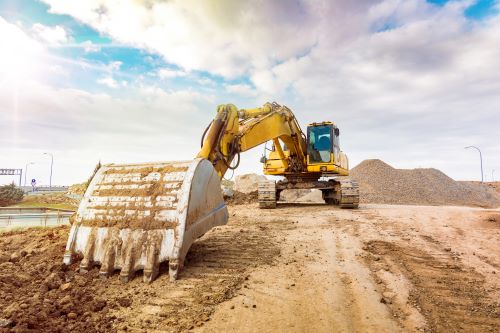
What Is Heavy Equipment?

Have you always loved working outdoors? Are you interested in a career that will pay well and offer steady work? Then a career in construction is perfect for you. One position that already has high demand, and is only growing more and more, is a heavy equipment operator. If you don’t have experience in the industry, you may be wondering, what is heavy equipment? Read on below to find out more.
Heavy equipment is used to refer to vehicles that perform heavy-duty tasks in construction and earth-moving work. This means they are used in large construction jobs that require excavation. It does not necessarily refer to machines that are the largest or weigh the most.
What is the heavy equipment that you can learn about in a training program? If you’re serious about a career in this industry, you will need to find a program that covers a range of different machines in multiple categories. Having experience with each will enable you to find more work.
Categories of Heavy Equipment
So, what are the categories of heavy equipment? The most common are typically:
Track-type, which includes bulldozers. Bulldozers can be used on a variety of sites and in a lot of different construction jobs due to their versatility. This is partially because there are different kinds of dozers and different sizes. Dozers are great for moving large amounts of soil, snow, sand, and construction materials.
Graders are the types of heavy equipment used to create a flat surface.
Loaders are, as the name implies, used to load soil, rocks, debris, and other materials onto machinery like dump trucks or conveyor belts. There are different types, including skid loaders, track loaders, and wheel loaders. Each has its own advantages. Wheel loaders can move faster than track loaders. Track loaders do not leave a mark on construction sites like wheel loaders do.
Backhoes have buckets that make them great for digging. And backhoes can also lift and place heavy loads. They have different attachments. And these machines can be rotated about 180 degrees.
Excavators are heavy equipment that have a variety of different attachments. They are used for a number of different tasks. This includes digging, demolition, mining, construction work, snow removal, forestry work, and more. The ability to work in those different industries once you know how to operate these types of machines is what many discover is a great advantage of heavy equipment training.
And what sets them apart even more is the ability to rotate a full 360 degrees. Some construction sites may use mini excavators, which perform the same function for smaller jobs.
Paving, which includes vibratory compactors. This heavy equipment uses either a plate or a roller to compact materials like gravel, hot asphalt, soil, and concrete. They are used to prepare a construction site, providing a solid foundation.
Material handler, which is the category that includes cranes. Cranes are included as heavy equipment, but there are separate courses to become a certified crane operator.
Scrapers are used for earthmoving.
Learn to Operate More Than One
Here at West Coast Training, you will be thoroughly skilled and knowledgeable about the different facets of each machine. We cover safety guidelines, the proper way to operate each machine, preventative maintenance, and other important knowledge. You’ll also learn about different tasks performed on construction sites, like flagging and grade checking. Our small class sizes ensure each student has enough time with each piece of heavy equipment.
You can find out more information on West Coast Training’s website. If you’re still unsure whether or not a career in operating heavy equipment is right for you, we have a free quiz on this website that only takes a few minutes to complete.
